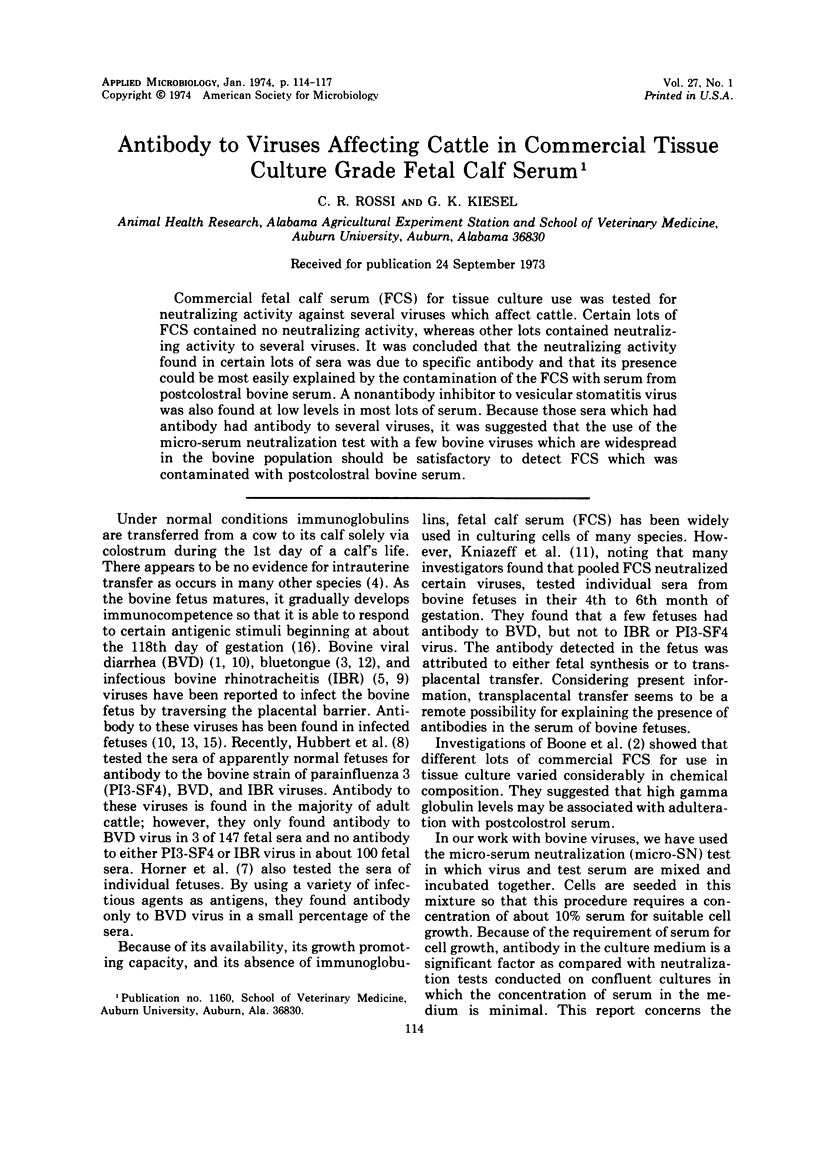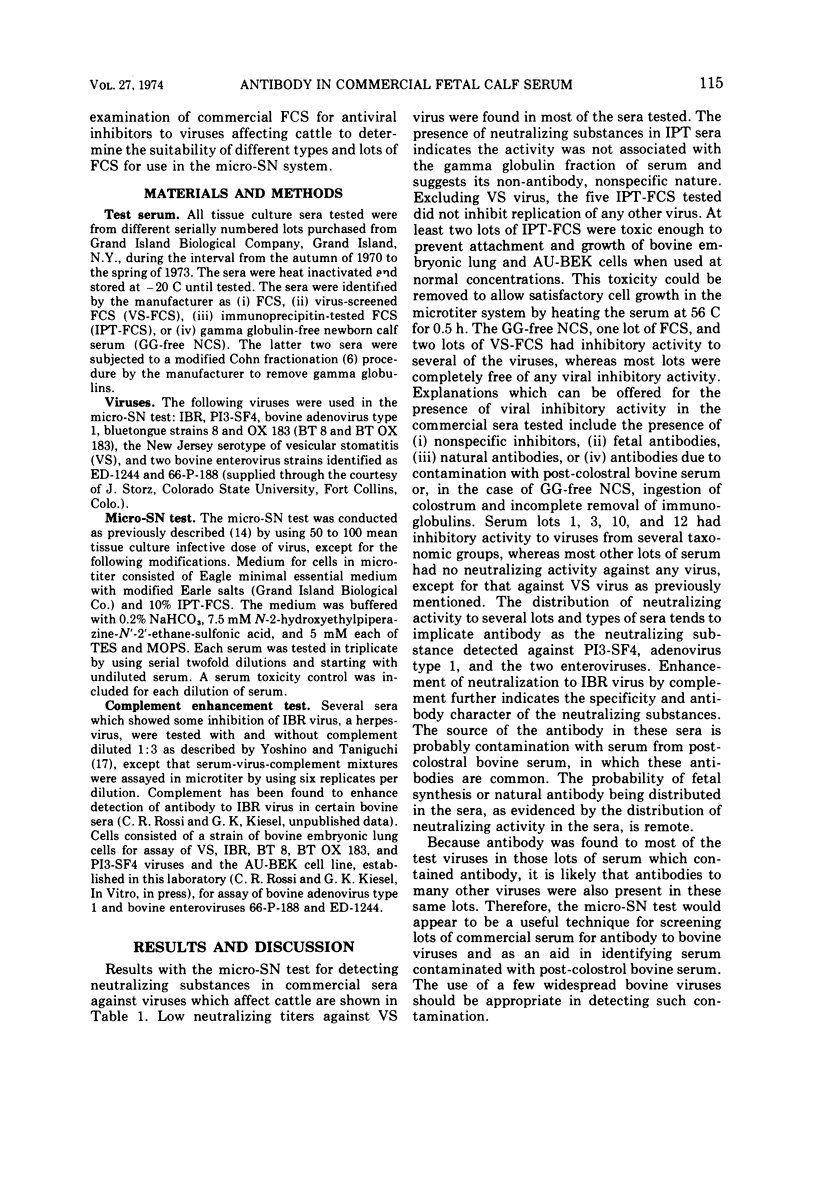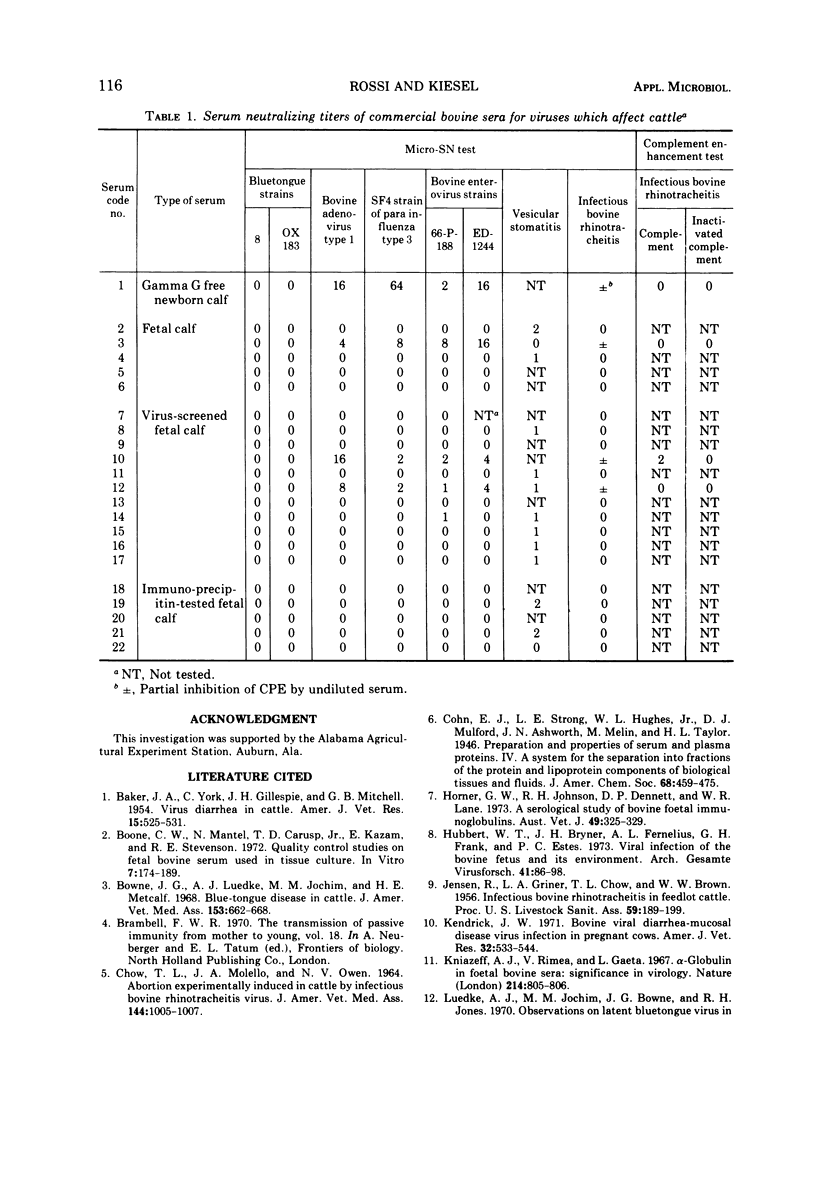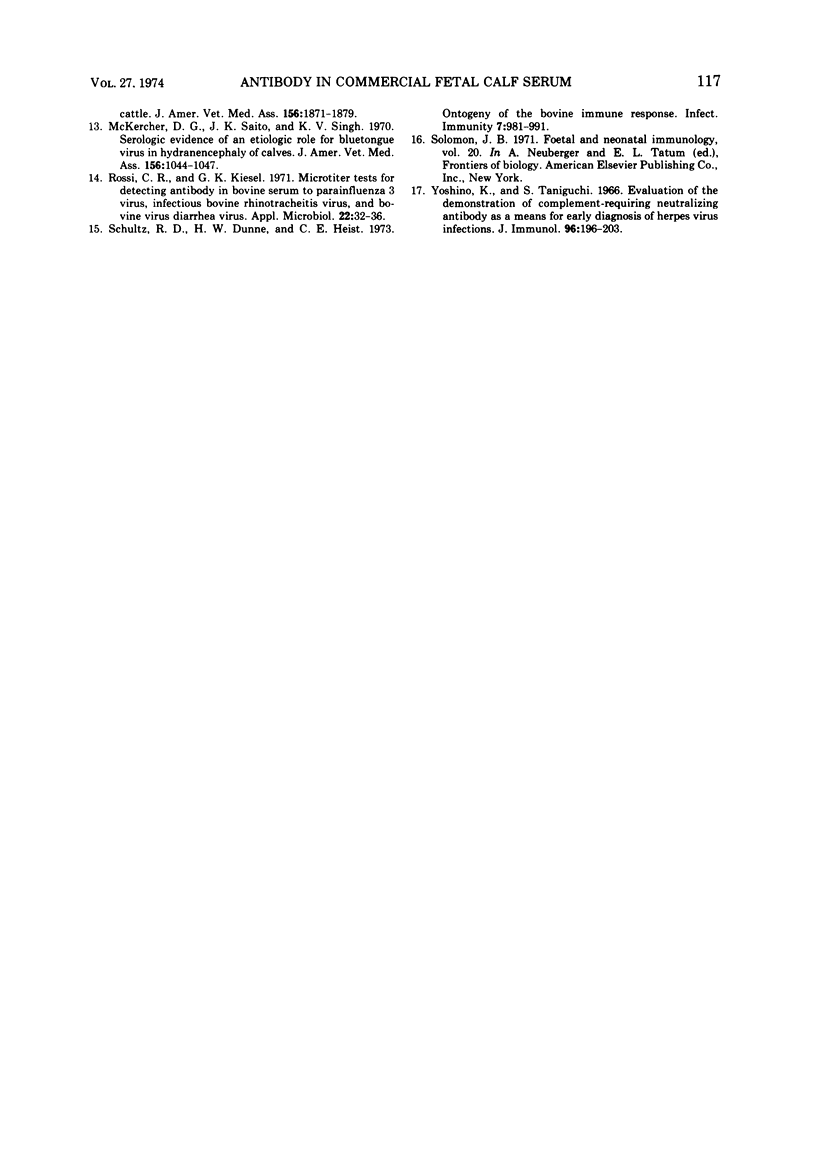Abstract
Commercial fetal calf serum (FCS) for tissue culture use was tested for neutralizing activity against several viruses which affect cattle. Certain lots of FCS contained no neutralizing activity, whereas other lots contained neutralizing activity to several viruses. It was concluded that the neutralizing activity found in certain lots of sera was due to specific antibody and that its presence could be most easily explained by the contamination of the FCS with serum from postcolostral bovine serum. A nonantibody inhibitor to vesicular stomatitis virus was also found at low levels in most lots of serum. Because those sera which had antibody had antibody to several viruses, it was suggested that the use of the micro-serum neutralization test with a few bovine viruses which are widespread in the bovine population should be satisfactory to detect FCS which was contaminated with postcolostral bovine serum.
Full text
PDF



Selected References
These references are in PubMed. This may not be the complete list of references from this article.
- BAKER J. A., YORK C. J., GILLEPSIE J. H., MITCHELL G. B. Virus diarrhea in cattle. Am J Vet Res. 1954 Oct;15(57):525–531. [PubMed] [Google Scholar]
- Boone C. W., Mantel N., Caruso T. D., Jr, Kazam E., Stevenson R. E. Quality control studies on fetal bovine serum used in tissue culture. In Vitro. 1971 Nov-Dec;7(3):174–189. doi: 10.1007/BF02617963. [DOI] [PubMed] [Google Scholar]
- Bowne J. G., Luedke A. J., Jochim M. M., Metcalf H. E. Bluetongue disease in cattle. J Am Vet Med Assoc. 1968 Sep 15;153(6):662–668. [PubMed] [Google Scholar]
- CHOW T. L., MOLELLO J. A., OWEN N. V. ABORTION EXPERIMENTALLY INDUCED IN CATTLE BY INFECTIOUS BOVINE RHINOTRACHEITIS VIRUS. J Am Vet Med Assoc. 1964 May 1;144:1005–1007. [PubMed] [Google Scholar]
- Horner G. W., Johnson R. H., Dennett D. P., Lane W. R. A serological study of bovine foetal immunoglobulins. Aust Vet J. 1973 Jul;49(7):325–329. doi: 10.1111/j.1751-0813.1973.tb06821.x. [DOI] [PubMed] [Google Scholar]
- Hubbert W. T., Bryner J. H., Fernelius A. L., Frank G. H., Estes P. C. Viral infection of the bovine fetus and its environment. Arch Gesamte Virusforsch. 1973;41(1):86–98. doi: 10.1007/BF01249933. [DOI] [PubMed] [Google Scholar]
- Kendrick J. W. Bovine viral diarrhea-mucosal disease virus infection in pregnant cows. Am J Vet Res. 1971 Apr;32(4):533–544. [PubMed] [Google Scholar]
- Kniazeff A. J., Rimer V., Gaeta L. Gamma-globulin foetal bovine sera: significance in virology. Nature. 1967 May 20;214(5090):805–806. doi: 10.1038/214805b0. [DOI] [PubMed] [Google Scholar]
- Luedke A. J., Jochim M. M., Bowne J. G., Jones R. H. Observations on latent bluetongue virus infection in cattle. J Am Vet Med Assoc. 1970 Jun 15;156(12):1871–1879. [PubMed] [Google Scholar]
- McKercher D. G., Saito J. K., Singh K. V. Serologic evidence of an etiologic role for bluetongue virus in hydranencephaly of calves. J Am Vet Med Assoc. 1970 Apr 15;156(8):1044–1047. [PubMed] [Google Scholar]
- Rossi C. R., Kiesel G. K. Microtiter tests for detecting antibody in bovine serum to parainfluenza 3 virus, infectious bovine rhinotracheitis virus, and bovine virus diarrhea virus. Appl Microbiol. 1971 Jul;22(1):32–36. doi: 10.1128/am.22.1.32-36.1971. [DOI] [PMC free article] [PubMed] [Google Scholar]
- Schultz R. D., Dunne H. W., Heist C. E. Ontogeny of the bovine immune response. Infect Immun. 1973 Jun;7(6):981–991. doi: 10.1128/iai.7.6.981-991.1973. [DOI] [PMC free article] [PubMed] [Google Scholar]
- Yoshino K., Taniguchi S. Evaluation of the demonstration of complement-requiring neutralizing antibody as a means for early diagnosis of herpes virus infections. J Immunol. 1966 Feb;96(2):196–203. [PubMed] [Google Scholar]


